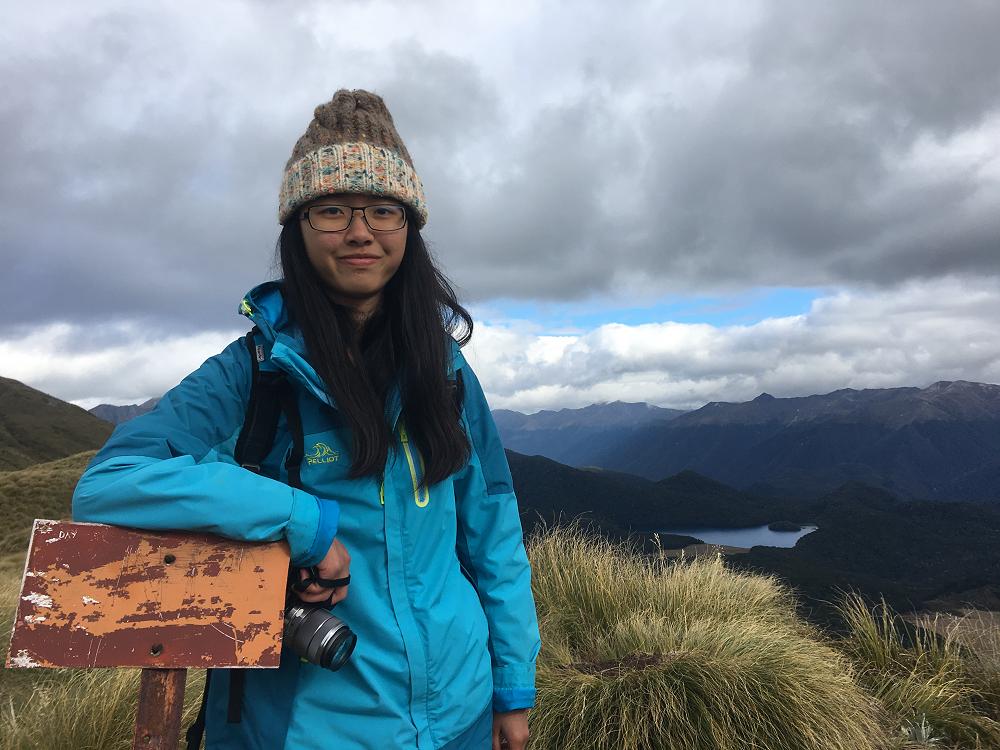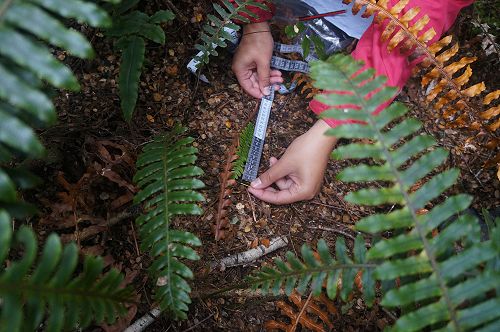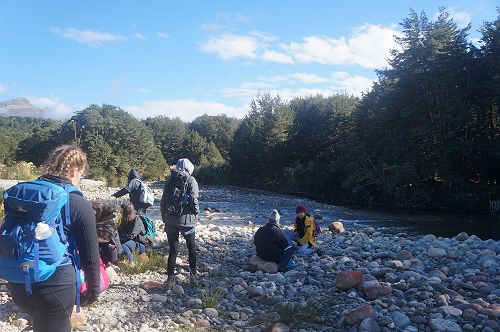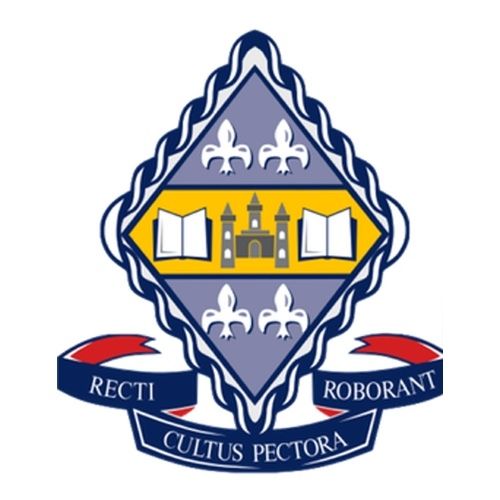
Louise Lin at Borland Camp
April 3rd witnessed one of the biggest groups of students setting off to Borland, Fiordland for five days to participate in the Year 12 Biology and Geography Borland Camp. As the only international student doing both biology and geography, I have not only learned a lot about these two subjects, but also gained the courage to challenge myself, friendship, and skills of teamwork.
Also, as a new student who has studied in OGHS for 9 months so far, I have got the experiences worth remembering for a lifetime during my first camp.
Kayaking and Caving
I remember in the first meeting when we arrived in Borland Lodge on Monday, Miss Dunn said to all of us, “This week, try to challenge yourself.” This was absolutely true. Kayaking and caving, both of which I had never tried before, were done as my first two activities.
I could not tell you what I thought before these two activities because my mind was just empty with fright and I had no idea what would happen next. But one thing was clear in my mind: Just try it. Challenge yourself! I was like a baby trying to walk when I used the pedal and drifted quite slowly behind others in my group. However, at the end, I could not believe that I did stand on the boat and even completed a run on all the boats when we lined up. I still fell over into the water at least five times as I played with others and we just went “crazy” in the water. They always helped me when I got stuck in the weed or failed to change direction. We became friends and this was like an ice-breaking game among us.
Caving was the activity I enjoyed most during the whole trip. Although teachers and the instructor kept telling us it was highly likely to be wet, none of us in my group got soaking wet. It was an activity that not only required physical fitness or a pair of long legs to jump across the ponds, it also made your brain plan before you went on. That was the secret to staying dry! The reason I liked caving the most was because it made me feel like I was a real geologist exploring the mystery under the ground. I was fascinated by the stones hanging downwards from the ceiling and the holes on the limestones caused by the erosion of water.
Studying
The main purpose of this camp was that the fieldwork and the raw data we collected, both for the stratification of beech forest in biology, and the zonation or spatial variation of vegetation in geography, are part of the assessment standard.
I worked in a group and completed the first two walks for biology and geography on Wednesday and the other two walks on Thursday. The first biology walk was guided by Mr Curtis, Mr Trickey and Mrs Davidson. As we walked through the beech forest, they talked about the adaptations of the beech trees, crown ferns, coprosmas, lancewood as well as the competition between the birds. Then we used nets to catch the small invertebrates living in the stream, found spiders on a river bed and gave them a “swimming lesson”, which were the exciting moments of the walk. After this introduction walk, we got to do some measurements about the stratification of the forest. Guided by Mr Richards and Miss Pollitt, we set our transect line and collected the data about the height, trunk diameter, branch spread, etc. For geography, I liked the 40 minute walk up to the saddle peak viewing the debris of possibly the largest landslide on earth triggered by the retreat of glaciers and earthquake 12000 years ago, and I also enjoyed the three hour tramping through the v-shape valley and got the chance to see the uplift of the sandstone once in the sea, but I was quite exhausted and lay on the floor in the cabin for a while afterwards.
With the graph for biology and the workbook for geography completed in one night, I experienced a new learning style that I haven’t done in China before. Learning is not just confined within the classroom. Getting to do some practical field work is really beneficial for the students as we got closer to what we will be doing if we chose them as our major or career in the future. Moreover, what meant a lot for me from this trip is that seeing the relief of the landslide in real life and applying the knowledge in fieldwork made me become more interested in geology, which I have already decided to be majoring in. When you step into the forest learning the adaptations the plants have evolved for enormous amount of time and the life cycle and regeneration of plants, or seeing the landscape carved by the force deep inside the Earth, you will feel the silent flowing of time and realise that each one of us is just a tiny dot on the axis of time.
I also learned about the importance of teamwork. I offered to do the “dirty” work for my group no matter when it came to flicking the rocks in the river with the chance to get wet, or going to the wet fern layer, doing the measurements and taking photos for group members to record. The task could not be finished without everyone’s effort. It must be someone in the team that does such things and it teaches me that don’t think you will be disadvantaged by doing so; on the contrary, I got to know something different and I was just simply pleased to see my group finish the task. Teamwork was not just required in a small group; it became even more crucial on the camp site with over 130 students and staff.
In the Camp Site
I was put into the largest cabin that had 13 of us living inside. It seemed quite unlucky though with 13 people’s damp clothes making the room stinky, etc. However, I think I was so lucky that I was in this 13-person cabin. I remembered clearly that on the first day, one of the girls, Mila said that we were friends because we ended up in the same cabin. Everyone gave a hand when someone needed it, no matter it was just a small thing like lending a comb or toilet paper, or helping clearing the rubbish bin and vacuuming the carpet. Our room was also filled with laughter. We “laughed at” Snow bumping her head into the bunk bed several times a day. They “laughed at” me that I kept looking for my head torch under the bed for half an hour as the room was quite small with 13 people’s stuff and eventually I found it in my bag…
What I was impressed with the most and was grateful for was our respect for each other. No one talked aloud when someone was sleeping earlier or didn’t wake up. Although the lights-off time was 10 p.m, we turned off the light every night at around 9:30. We could still hear the noise of the party from other cabins and the teacher shouting, “Get on the bed. Lights off. Settle down.” It was definitely not easy for such a big group to be so organised, but almost every night when the teacher opened the door for check, I heard, “Great!” so many times. This is a precious lesson and I am really appreciated everyone in our cabin for our respect and consideration for each other.
In the living room and the kitchen, it was well organised too. Students turned up for the duty and teachers worked really hard. My group got the duty to clean the toilet and bathroom. I knew it was not a pleasing job but no one complained or didn’t turn up that day. We worked together to finish the duty. Before every activity, we had to have our gear checked by the teacher. And we shared our gear with the students that didn’t bring it. It was not just among the friends but some students shared it with others that they didn’t know each other before.
There were so many things about friendship and teamwork that I can talk about. Thank you to all the teachers, drivers, lodge staff and all of us, who made this camp successful, and has made my first camp ever into my best memories forever.
Gallery


